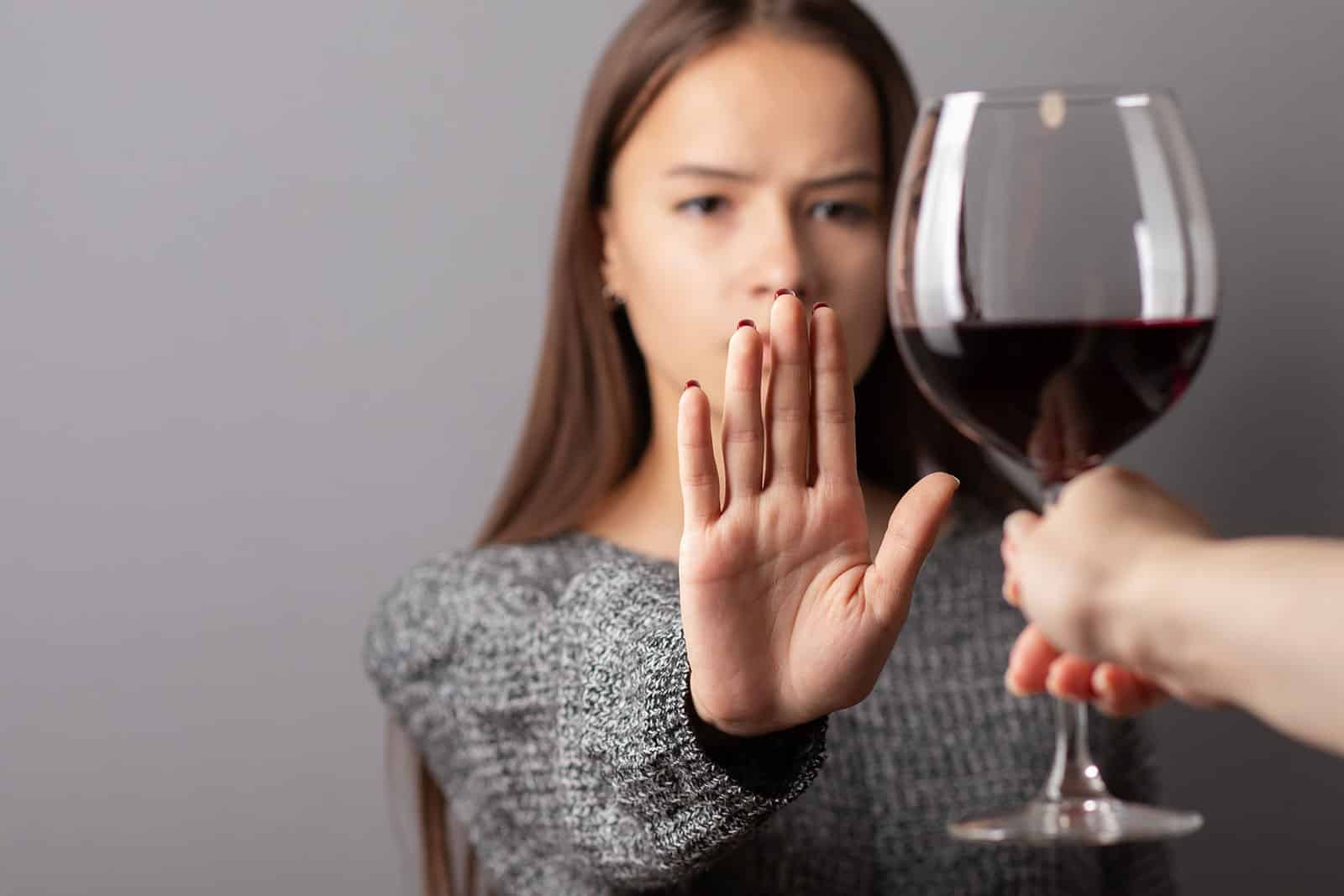
Quitting Alcohol Timeline: A Detailed Guide
Home » Blog » Quitting Alcohol Timeline: A Detailed Guide
From prompting heart disease to causing nighttime awakenings, alcohol use disorder can stimulate a variety of issues. If you’re a heavy drinker, you might be scared to go through treatment.
That’s understandable. You don’t know what it’s like, how you’ll feel, or how your body will react. That’s what this post is for.
It’ll cover the quitting alcohol timeline, showing you all the symptoms you might experience as you go through treatment.
Table of Contents
The First Day
Yes, alcohol withdrawal symptoms can appear within the first 12-24 hours. The intensity of these symptoms, however, depends on the severity of the addiction.
Heavy drinkers will experience extreme withdrawal symptoms, including headaches, sweating, tremors, irritability, and anxiety. However, for people who drink alcohol less intensively, withdrawal symptoms will be a bit milder.
Many of those who try to quit alcohol can’t withstand these symptoms, so they fall off the wagon in the first few days.
That said, it’s crucial to understand that these symptoms are temporary and will subside after a while. So, keep on pushing, and you’ll eventually feel better.
The First Three Days
As time goes by, your alcohol cravings will intensify, and so will the withdrawal symptoms. In fact, the first three days are when these symptoms are most intense. You might even start experiencing new symptoms.
Insomnia
Insomnia is one of the most common symptoms of alcohol withdrawal. As you can probably tell, alcohol has a sedative effect. It helps you relax and become drowsy, which prompts you to sleep faster.
Now that this sedative agent is no longer in your system, you’ll have trouble falling/staying asleep.
Depression
For many, excessive drinking started as a coping mechanism, whether it was to deal with fallen relationships, traumatic experiences, or other life problems. If that’s you, you probably resorted to alcohol’s numbing properties to escape these issues.
After quitting, these negative emotions bubble up all at once. That’s bound to take a toll on your mental well-being. It’s not just depression, though. You might also experience anxiety and irritability.
Some people use alcohol as a way to manage their mood. Those will experience mood swings once they quit drinking. The more intense the dependence, the more extreme the swings will be.
Luckily, these mental health issues don’t last long. They’ll go away as you get better. So, don’t let that discourage you from continuing treatment.
Delirium Tremens (DT)
In some cases, patients struggling with alcohol addiction might develop delirium tremens (DT). It’s a severe form of alcohol withdrawal that’s usually associated with heavy drinkers.
Unfortunately, it involves a wide range of life-threatening symptoms. Physical symptoms include:
- Nausea
- Vomiting
- Fever
- Rapid heart rate
- Chest pain
- High blood pressure
Psychological symptoms include:
- Confusion
- Disorientation
- Being easily startled
- Visual and auditory hallucinations.
- Sleepiness
- Nightmares
That’s why the first three days of alcohol detox are always the hardest. On a positive note, most of these intense symptoms subside after three days.
So, once you pass that milestone, you’ll start functioning semi-normally again. If you’re a heavy drinker, though, you might have to deal with these symptoms a bit longer.
The First Week
After seven days with no alcohol consumption, withdrawal symptoms will gradually disappear for most people, and you’ll start feeling better.
Your Liver Will Start Healing
You probably already know that excessive alcohol is a liver killer. When your liver filters alcohol, some of its cells die. However, it can grow new cells to continue functioning normally.
Unfortunately, prolonged alcohol misuse reduces your liver’s ability to regrow new cells, leading to alcohol-related liver disease. Quitting alcohol gives your liver the time and energy to grow new cells, and you won’t have to worry about ARLD in the future.
Your Blood Pressure Will Go Down
Researchers have long believed that regular drinking can raise your blood pressure. High blood pressure prompts your heart to work harder to pump blood to the rest of your body.
Over time, that can cause your left ventricle to enlarge, increasing the risk of heart failure. After a week of sobriety, though, your blood pressure will go back to normal. That reduces the risk of heart disease, strokes, or heart failure.
You’ll Feel Happier
If you’ve struggled with alcohol addiction, you probably experienced intense feelings of depression and anxiety. These disorders prompt you to become persistently sad and lose interest in activities you once enjoyed.
Naturally, after your body has become accustomed to functioning without alcohol, these feelings won’t have as much of a toll on you. So, you’ll feel genuinely happier.
Important note: Quitting alcohol won’t necessarily treat the illness you’ve developed while drinking, but it can make them more treatable.
The First Two Weeks
If withdrawal symptoms press on beyond the first seven days, they should disappear within the first half of the second week. Not only that, but you’ll also experience
Weight Loss
The relationship between alcohol consumption and weight gain is complex. Some believe that alcohol’s excess calories cause more fat to accumulate around the abdominal area, which isn’t necessarily accurate.
Alcohol misuse prompts your liver to put all its energy into breaking down alcohol rather than fat. As your body stops burning fat effectively, it accumulates around the abdominal area, causing unhealthy weight gain.
However, alcohol cessation allows your liver functions to focus on breaking down the fat in your body, making it less likely to gain weight.
Better Sleep
As previously mentioned, heavy drinkers can resort to alcohol to fall asleep quickly. What most people don’t know is that drinking can affect the quality of that sleep.
Not only does it prompt nighttime awakenings, but it also disrupts rapid eye movement (REM) sleep. That’s the deepest stage of sleep, the one where you start having dreams.
You can tell interrupted sleep will put you in a bad mood, and you’ll wake up angry and irritated. Abstaining from alcohol teaches your body to function without it. That includes giving you quality sleep.
You might get a few sleep disturbances now and then, but overall, you’ll get better sleep than what you got with alcohol.
The First Month
After one month without drinking alcohol, you should pass the point where you experience intense cravings. That means most, if not all, withdrawal symptoms have subsided, and you can make full use of your body again.
Here’s the thing: Recovery isn’t exclusive to physical improvements. Your brain also starts healing from the damage it may have experienced while drinking.
You see, alcohol addiction can disrupt your brain chemistry, prompting a decline in cognitive abilities. Patients struggle with learning new subjects, memory loss, poor concentration, dementia, and more. In severe cases, alcoholism can even cause brain atrophy.
That means you’ll lose brain cells and the connections that help them communicate. However, after you quit drinking, you’ll regain your cognitive abilities at the one-month mark.
You’ll be able to concentrate, plan your tasks, make decisions, and regulate your emotions better.
The First Three Months
Once you spend three months without alcohol, you should be able to live your life normally. Cravings will become less regular, and even if they occur, they’ll be easier to manage.
That’s not the only improvement you’ll experience at this point, though. You’ll also experience an energy boost.
People who misuse alcohol usually do it to sedate themselves, blocking all negative emotions. Naturally, they won’t have any energy to go about their day.
After quitting, however, that sedation will subside, and they’ll have more energy throughout the day to be more productive.
The First Six Months
Half a year without heavy drinking is an incredible achievement, and you should start noticing significant improvements in your skin appearance.
Yes, alcohol misuse doesn’t just affect your brain and organs. It also affects your skin. You see, alcohol is a diuretic, which means it can prompt your body to expel more water and salt than usual, causing dehydration.
Dehydration affects your skin in the following ways:
- Dries your skin.
- Reduce your skin’s elasticity.
- Promotes dark circles around the eyes.
- Dries your lips.
After six months of sobriety, though, your skin will become more radiant and luscious due to higher levels of hydration. Overall, you’ll look younger, healthier, and more energetic.
The First Year
At this point, all the extreme health conditions you had to fight with should be eliminated. Now that you don’t have to deal with the internal shame of living with alcohol addiction, you’ll feel more confident and start making the most of your life.
Even after a year, you’ll continue to experience physical improvements, especially in your bones. Yes, alcoholism can hinder your bone growth.
To grow more bones, you need calcium, and to absorb calcium, you need vitamin D. Unfortunately, prolonged alcohol use prevents your body from absorbing the necessary amount of vitamin D to help your bones grow. That causes your bone density to decrease.
After quitting alcohol, your body will absorb more calcium, causing your bone density to increase significantly and reducing the risk of potential fractures.
Final Thoughts
Now you know what the quitting alcohol timeline is like. It’s a long process, and each phase offers different types of improvements, whether it’s physical or mental.
So, if you’re struggling with alcohol dependence, don’t be discouraged if you don’t feel an immediate difference after quitting.
Published on: 2024-06-06
Updated on: 2024-12-03
Category: Alcohol
